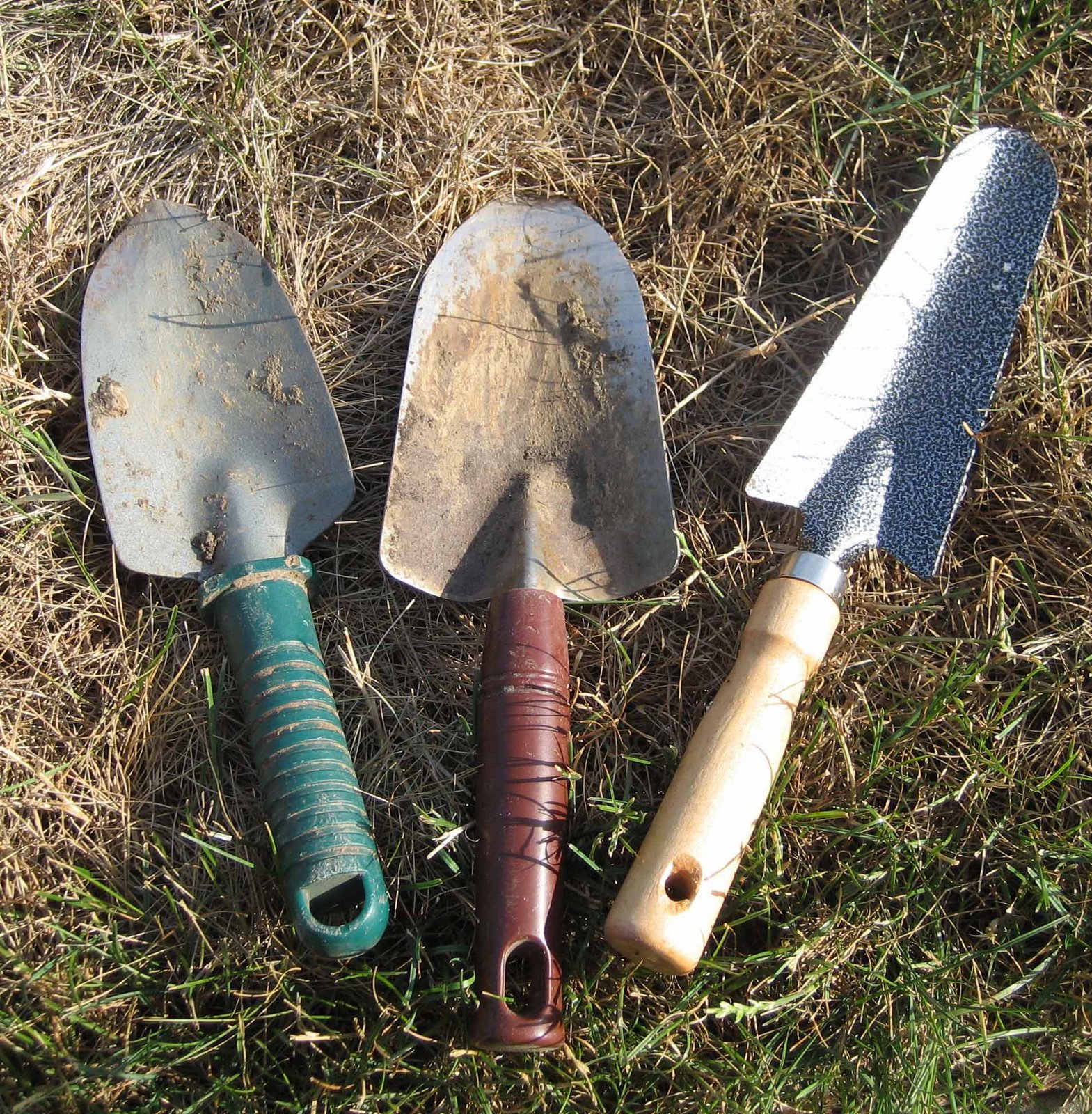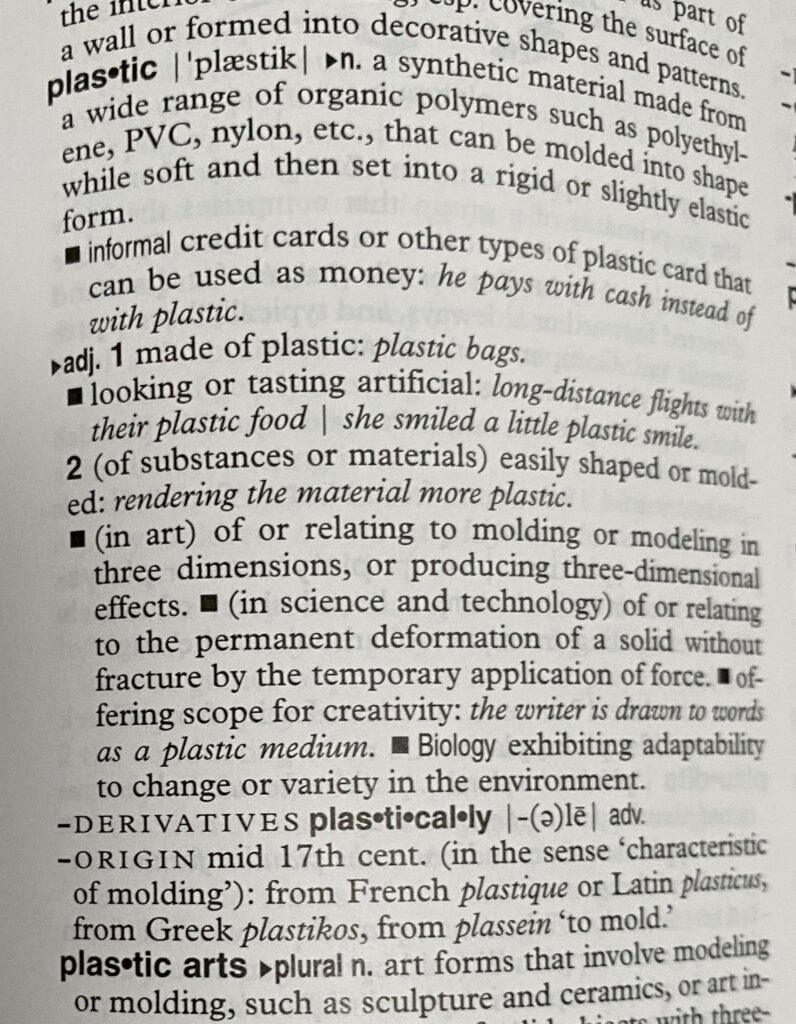
“Again on Nature; take thy plastic spade,
It is thy pencil: take thy seeds, thy plants,
They are thy colours; and by these repay
With interest every charm she lent thy art.”
This was written by the English poet William Mason (1725 – 1797). It is part of a much longer poem called The English Garden. Book I.
Is anyone else bothered by the modern-sounding word “plastic” used to describe the spade. Does it make you wonder if this quote was made up and someone used that word inappropriately? And what must it be like to dig with a plastic (as in modern day plastic) spade.
Yes, me too!
So I pulled out my American Oxford English dictionary from my shelf of dictionaries, and by golly, the word “plastic” was first used in the mid 17th century. It is “characteristic of something molded.”
Proof…

Oh, so it’s a molded spade! Which most definitely could have existed when Mason wrote this poem in the 18th century.
I’m happy I could clear that up for myself, for you, for anyone else who reads that quote on the Internet and says “Hey, wait a minute…” because we all know not everything on the Internet is real!
Thanks for reading this little Saturday tidbit.
(Yes, I have a shelf of dictionaries with about a dozen or so dictionaries on it, plus I have a great big dictionary, the kind you want to put on its own stand because it’s about six inches thick. Heavy too. Not all of the dictionaries include information about when a word came into use, but the Oxford dictionary does. If you ever want to imagine the work that went into compiling words for the Oxford dictionary, check out some of the fiction that is based on it, including The Dictionary of Lost Words by Pip Williams. Then just imagine reading really old books to discover the first use of a word, like plastic.)


Nice post – educational and interesting.
Dictionary of Lost Words was a fascinating book!
Thank you! I love it when I need to look up a word, just to be sure. Nothing like having an actual dictionary at hand.